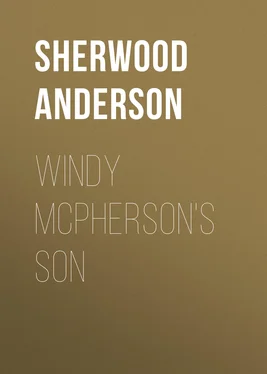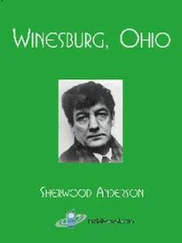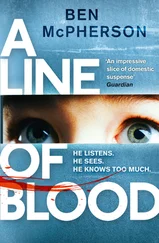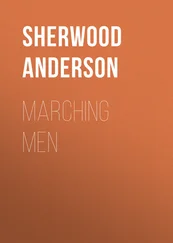Sherwood Anderson - Windy McPherson's Son
Здесь есть возможность читать онлайн «Sherwood Anderson - Windy McPherson's Son» — ознакомительный отрывок электронной книги совершенно бесплатно, а после прочтения отрывка купить полную версию. В некоторых случаях можно слушать аудио, скачать через торрент в формате fb2 и присутствует краткое содержание. Издательство: Иностранный паблик, Жанр: foreign_prose, literature_20, foreign_antique, на английском языке. Описание произведения, (предисловие) а так же отзывы посетителей доступны на портале библиотеки ЛибКат.
- Название:Windy McPherson's Son
- Автор:
- Издательство:Иностранный паблик
- Жанр:
- Год:неизвестен
- ISBN:нет данных
- Рейтинг книги:5 / 5. Голосов: 1
-
Избранное:Добавить в избранное
- Отзывы:
-
Ваша оценка:
- 100
- 1
- 2
- 3
- 4
- 5
Windy McPherson's Son: краткое содержание, описание и аннотация
Предлагаем к чтению аннотацию, описание, краткое содержание или предисловие (зависит от того, что написал сам автор книги «Windy McPherson's Son»). Если вы не нашли необходимую информацию о книге — напишите в комментариях, мы постараемся отыскать её.
Windy McPherson's Son — читать онлайн ознакомительный отрывок
Ниже представлен текст книги, разбитый по страницам. Система сохранения места последней прочитанной страницы, позволяет с удобством читать онлайн бесплатно книгу «Windy McPherson's Son», без необходимости каждый раз заново искать на чём Вы остановились. Поставьте закладку, и сможете в любой момент перейти на страницу, на которой закончили чтение.
Интервал:
Закладка:
The crowd applauded. The idea had caught their fancy and had instantly taken a place in their minds as one of the real events of the day.
Again Windy McPherson emerged from the crowd at the back of the hall. Raising his hand for silence he told the crowd that he was a bugler, that he had been a regimental bugler for two years during the Civil War. He said that he would gladly volunteer for the place.
The crowd shouted and John Telfer waved his hand. “The white horse for you, McPherson,” he said.
Sam McPherson wriggled along the wall and out at the now unbolted door. He was filled with astonishment at his father’s folly, and was still more astonished at the folly of these other men in accepting his statement and handing over the important place for the big day. He knew that his father must have had some part in the war as he was a member of the G. A. R., but he had no faith at all in the stories he had heard him relate of his experiences in the war. Sometimes he caught himself wondering if there ever had been such a war and thought that it must be a lie like everything else in the life of Windy McPherson. For years he had wondered why some sensible solid person like Valmore or Wildman did not rise, and in a matter-of-fact way tell the world that no such thing as the Civil War had ever been fought, that it was merely a figment in the minds of pompous old men demanding unearned glory of their fellows. Now hurrying along the street with burning cheeks, he decided that after all there must have been such a war. He had had the same feeling about birthplaces and there could be no doubt that people were born. He had heard his father claim as his birthplace Kentucky, Texas, North Carolina, Louisiana and Scotland. The thing had left a kind of defect in his mind. To the end of his life when he heard a man tell the place of his birth he looked up suspiciously, and a shadow of doubt crossed his mind.
From the mass meeting Sam went home to his mother and presented the case bluntly. “The thing will have to be stopped,” he declared, standing with blazing eyes before her washtub. “It is too public. He can’t blow a bugle; I know he can’t. The whole town will have another laugh at our expense.”
Jane McPherson listened in silence to the boy’s outburst, then, turning, went back to rubbing clothes, avoiding his eyes.
With his hands thrust into his trousers pocket Sam stared sullenly at the ground. A sense of justice told him not to press the matter, but as he walked away from the washtub and out at the kitchen door, he hoped there would be plain talk of the matter at supper time. “The old fool!” he protested, addressing the empty street. “He is going to make a show of himself again.”
When Windy McPherson came home that evening, something in the eyes of the silent wife, and the sullen face of the boy, startled him. He passed over lightly his wife’s silence but looked closely at his son. He felt that he faced a crisis. In the emergency he was magnificent. With a flourish, he told of the mass meeting, and declared that the citizens of Caxton had arisen as one man to demand that he take the responsible place as official bugler. Then, turning, he glared across the table at his son.
Sam, openly defiant, announced that he did not believe his father capable of blowing a bugle.
Windy roared with amazement. He rose from the table declaring in a loud voice that the boy had wronged him; he swore that he had been for two years bugler on the staff of a colonel, and launched into a long story of a surprise by the enemy while his regiment lay asleep in their tents, and of his standing in the face of a storm of bullets and blowing his comrades to action. Putting one hand on his forehead he rocked back and forth as though about to fall, declaring that he was striving to keep back the tears wrenched from him by the injustice of his son’s insinuation and, shouting so that his voice carried far down the street, he declared with an oath that the town of Caxton should ring and echo with his bugling as the sleeping camp had echoed with it that night in the Virginia wood. Then dropping again into his chair, and resting his head upon his hand, he assumed a look of patient resignation.
Windy McPherson was victorious. In the little house a great stir and bustle of preparation arose. Putting on his white overalls and forgetting for the time his honourable wounds the father went day after day to his work as a housepainter. He dreamed of a new blue uniform for the great day and in the end achieved the realisation of his dreams, not however without material assistance from what was known in the house as “Mother’s Wash Money.” And the boy, convinced by the story of the midnight attack in the woods of Virginia, began against his judgment to build once more an old dream of his father’s reformation. Boylike, the scepticism was thrown to the winds and he entered with zeal into the plans for the great day. As he went through the quiet residence streets delivering the late evening papers, he threw back his head and revelled in the thought of a tall blue-clad figure on a great white horse passing like a knight before the gaping people. In a fervent moment he even drew money from his carefully built-up bank account and sent it to a firm in Chicago to pay for a shining new bugle that would complete the picture he had in his mind. And when the evening papers were distributed he hurried home to sit on the porch before the house discussing with his sister Kate the honours that had alighted upon their family.
With the coming of dawn on the great day the three McPhersons hurried hand in hand toward Main Street. In the street, on all sides of them, they saw people coming out of houses rubbing their eyes and buttoning their coats as they went along the sidewalk. All of Caxton seemed abroad.
In Main Street the people were packed on the sidewalk, and massed on the curb and in the doorways of the stores. Heads appeared at windows, flags waved from roofs or hung from ropes stretched across the street, and a great murmur of voices broke the silence of the dawn.
Sam’s heart beat so that he was hard put to it to keep back the tears from his eyes. He thought with a gasp of the days of anxiety that had passed when the new bugle had not come from the Chicago company, and in retrospect he suffered again the horror of the days of waiting. It had been all important. He could not blame his father for raving and shouting about the house, he himself had felt like raving, and had put another dollar of his savings into telegrams before the treasure was finally in his hands. Now, the thought that it might not have come sickened him, and a little prayer of thankfulness rose from his lips. To be sure one might have been secured from a nearby town, but not a new shining one to go with his father’s new blue uniform.
A cheer broke from the crowd massed along the street. Into the street rode a tall figure seated upon a white horse. The horse was from Culvert’s livery and the boys there had woven ribbons into its mane and tail. Windy McPherson, sitting very straight in the saddle and looking wonderfully striking in the new blue uniform and the broad-brimmed campaign hat, had the air of a conqueror come to receive the homage of the town. He wore a gold band across his chest and against his hip rested the shining bugle. With stern eyes he looked down upon the people.
The lump in the throat of the boy hurt more and more. A great wave of pride ran over him, submerging him. In a moment he forgot all the past humiliations the father had brought upon his family, and understood why his mother remained silent when he, in his blindness, had wanted to protest against her seeming indifference. Glancing furtively up he saw a tear lying upon her cheek and felt that he too would like to sob aloud his pride and happiness.
Читать дальшеИнтервал:
Закладка:
Похожие книги на «Windy McPherson's Son»
Представляем Вашему вниманию похожие книги на «Windy McPherson's Son» списком для выбора. Мы отобрали схожую по названию и смыслу литературу в надежде предоставить читателям больше вариантов отыскать новые, интересные, ещё непрочитанные произведения.
Обсуждение, отзывы о книге «Windy McPherson's Son» и просто собственные мнения читателей. Оставьте ваши комментарии, напишите, что Вы думаете о произведении, его смысле или главных героях. Укажите что конкретно понравилось, а что нет, и почему Вы так считаете.












